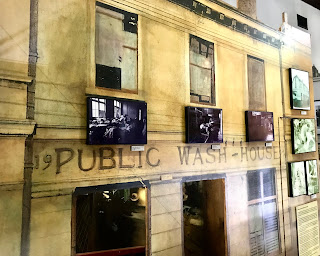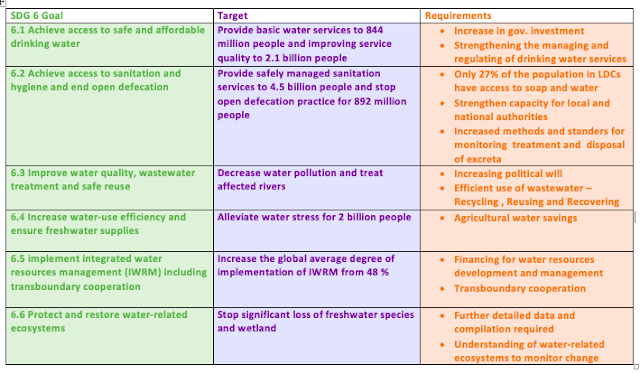Colonisation - for better or for worse?
Inspired by my recent trip to Cape Towns District Six museum and reading the water and food blog "(De)colonising water.." I gained a useful insight into the effects of colonisation ruling in Africa, and the impact colonisation still has on water access rights and water sanitation today.
During my visit to the District six museum, I learnt about the Public Washhouses created in the 20th century after the colonial government became concerned over the spread of infectiousness disease such as the bubonic plague spreading as women washed in streams (District Six Museum,1999). Initially, when the first wash house was opened in 1905 good quality facilities were provided such as cast iron washing stall, high-speed extractors and ironing stoves (District Six Museum,1999). Women were initially allowed to use the wash house facilities free of charge. However, shortly after two months, the colonial government decided to charge for the use resulting in many of the women returning back to the contaminated water streams(District Six Museum,1999). In 1921 the washing in streams was made prohibited and thus, the poorest of residents in district six areas were forced to use the wash houses and often had problems paying fees. After, the 1960s the apartheid forced residents to move out of district six leading to the abandoning of the wash house and by 1971 the City Council closed the wash house instead of paying for repairs (District Six Museum,1999). Below are images from the District six museum which showed complaints of the facilities and the regulations created for the wash houses:
 |
| Image 2: Letter of Complaint to the Council. Source: District Six Museum, 1999 |
 |
| Image 1: Regulations of the Corporate Wash House. Source: District Six Museum, 1999 |
The above case in CapeTown portrays the often debated benefits and cons of European colonisation in Africa. In the above case, the colonial government realised the poor sanitation issue around water streams and had the ability to provide an alternative solution yet then proceeded to increase the price of using the wash house which untimely negatively affected the poorest of locals. This idea is echoed by Njoh and Akiwumi, 2011 who conducted a study on the impact of colonisation and access to improved water and sanitation facilities across Africa. Their results illustrated that there was increased access to water sanitation facilities within a long colonisation period rather than a shorter period, displayed in Table 1 below.
 |
| Table 1:% of urban population with access to improved water sanitation dependent on duration of a colonial era. Source:(Njoh and Akiwumi, 2011) |
European colonial projects meant the development of modern infrastructure facilities which is a key part of improved access to water sanitation. The introduction of the colonial amenities provided initially started by "winning the hearts and minds" of the Africans (Njoh and Akiwumi, 2011). The research also showed that facilities installed during the colonial period were also shown to outlive the colonial era and laid a developmental foundation for today. Concluding a strong relationship between the length of the colonial era and the access to improved water sanitation in Africa (Njoh and Akiwumi, 2011). Despite this relationship, the rule of colonisation in Africa was led by the oppression of Africans and the intense labour forced on the Africans who would have been involved in making the infrastructure noted as improving access to water sanitation. This can be summarised by Rodney, 2012 who powerful concludes the success of European colonial projects deriving from the "Africans continent natural riches and labour inputs", highlighting how the proven success of colonisation and improved access to water sanitation at the harsh price of injustice.



Comments
Post a Comment